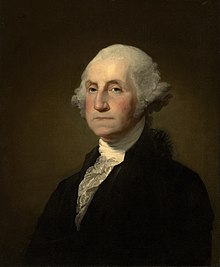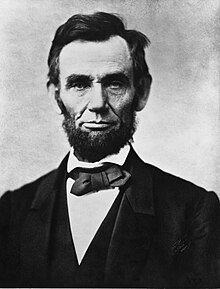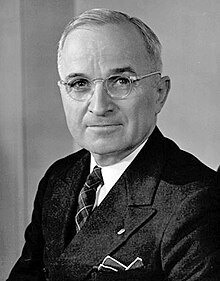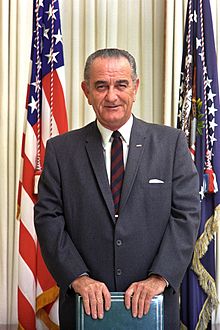The Imperial Presidency
 |
|
| Author | Arthur M. Schlesinger, Jr. |
|---|---|
| Country | United States |
| Language | English |
| Publisher | Houghton Mifflin |
|
Publication date
|
1974 |
| Media type | non-fiction |
| Pages | 505 pg |
| Awards | none |
| ISBN | |
| OCLC | 704887 |
| George Washington | |
|---|---|
 |
|
| 1st President of the United States | |
|
In office April 30, 1789 – March 4, 1797 |
| Abraham Lincoln | |
|---|---|
 |
|
| 16th President of the United States | |
|
In office March 4, 1861 – April 15, 1865 |
| Theodore Roosevelt | |
|---|---|
 |
|
| 26th President of the United States | |
|
In office September 14, 1901 – March 4, 1909 |
| Harry S. Truman | |
|---|---|
 |
|
| 33rd President of the United States | |
|
In office April 12, 1945 – January 20, 1953 |
| Lyndon Baines Johnson | |
|---|---|
 |
|
| 36th President of the United States | |
|
In office November 22, 1963 – January 20, 1969 |
| Richard Milhous Nixon | |
|---|---|
 |
|
| 37th President of the United States | |
|
In office January 20, 1969 – August 9, 1974 |
The Imperial Presidency, by Arthur M. Schlesinger, Jr., is a book published in 1974 by Houghton Mifflin. This book details the history of the Presidency of the United States from its conception by the Founding Fathers through the latter half of the 20th century. The author wrote the book out of two concerns: first, that the US Presidency was out of control and second, that the Presidency had exceeded its constitutional limits.
A presidency becomes imperial when it relies on powers beyond those allowed by the Constitution of the United States. The Constitution established three separate branches of government, not for efficiency but to avoid the arbitrary exercise of power. The government outlined by the Constitution was to replace and improve upon the imperial executive government of King George III of Britain. The book links the president’s accumulation of foreign powers during wartimes to the accretion of domestic powers.
The Constitution and its authors determined that the power to initiate a war belonged to the Congress. The president had the responsibilities to conduct ongoing wars and ongoing foreign relations, and to respond to sudden attacks if Congress were not in session. As the United States became a great world power and then a superpower, the presidency acquired more war powers despite the Constitution. That reduced Congress' powers and the separation of powers, which is necessary to avoid the arbitrary use of power.
In 1793, President George Washington unilaterally determined that the new American Republic was neutral in the war between Britain and France during the French Revolutionary Wars. Alexander Hamilton supported the action while Thomas Jefferson and James Madison objected. The proclamation prohibited American citizens from assisting either Britain or France. However, grand juries refused to enforce the proclamation.
...
Wikipedia
